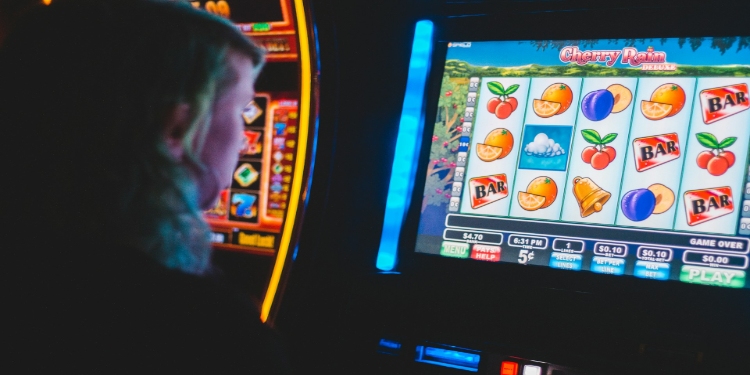The growth of online casinos over the past decade has prompted extensive discussions on safety and regulatory oversight. By 2025, the digital gambling sector has made considerable progress in enhancing user protections, including data encryption, identity verification, and transaction monitoring.
These measures are now standard practice, offering players a level of security often exceeding what traditional land-based establishments can provide. For instance, examinations of online slot gaming trends, which you can find on this guide https://iknf.se/casino/otroliga-fakta-som-borde-sporra-dig-att-spela-slots-casino/, underscore how digital platforms are adapting to user expectations in security and efficiency. As online platforms continue to evolve, so do their cybersecurity protocols. Many operators use end-to-end encryption similar to those employed by financial institutions.
Additionally, biometric authentication methods, such as facial recognition and fingerprint scanning, are beginning to supplement or replace outdated password-based systems. These changes not only combat fraud but also preserve the integrity of gameplay.
Regulatory compliance in online casinos
Online casinos are also subject to geographical regulations that influence their safety standards. Many offshore platforms operate under international licenses and submit to third-party audits. With the digitization of gambling spreading across jurisdictions, understanding which operators maintain high compliance standards has become essential for consumers.
One area where online gambling often intersects with broader digital trends is blockchain technology. Online gambling is a prime example of how blockchain-based decentralization is changing industries. The best crypto casino platforms don’t just offer fast payments—they eliminate middlemen, improve transparency, and let players retain control over their funds.
Traditional casino security measures
Land-based casinos have long invested heavily in physical and electronic security. Surveillance systems, floor personnel, and controlled access zones are standard features, aimed at preventing not just fraud, but also criminal activities such as robbery and money laundering.
Physical security and compliance
Casinos on the high street must comply with local statutes, which often mandate minimum security requirements. This includes video coverage of gambling areas, staff training protocols focused on detecting suspicious behavior, and secure cash storage facilities. These precautionary systems are often rigorous, but they are not without vulnerabilities.
Insider threats and the physical handling of cash introduce risks that are largely absent in the virtual setting. Moreover, traditional establishments must also manage the logistical complexity of maintaining both entertainment services and compliance procedures. While this dual focus is manageable, it inherently spreads resources, leaving some aspects potentially exposed.
Regulatory oversight and accountability
The question of safety ultimately extends to regulatory supervision. Online casinos often face stringent credentialing from recognized international authorities, including licensing bodies that enforce anti-money laundering practices, verify random number generation in games, and require regular system audits.
Comparing regulatory enforcement
By comparison, regulatory enforcement for physical casinos is localized, varying widely between urban centers and more rural locations. The effectiveness of oversight thus becomes inconsistent and may depend on available resources at the regional level.
While both online and brick-and-mortar venues are liable to sanctions and penalties for failing to meet regulatory standards, online operators are typically more transparent about audit results and security certifications. This openness is driven in part by the competitive pressure of the global marketplace. Players can compare licenses and trust ratings across platforms, prompting digital casinos to uphold elevated standards.
User responsibility and opportunity
Increased security in online gambling also depends on user awareness. Tools such as two-factor authentication, secure connections, and private payment methods empower users to safeguard their accounts. In some cases, digital casinos offer dashboards where users can monitor transaction histories and limit expenditures.
User-centered customization
Conversely, users in physical casinos often rely entirely on staff support for similar protections. While employees are trained in protocol, the dynamic environment of a casino floor does not always allow for personalized monitoring.
Digital platforms also support user-centered customization that enhances not just security but the overall experience. Options such as self-set limits, choice of preferred verification methods, and remote locking capabilities are uncommon in traditional settings.
Comparison of risk profiles
While traditional and online casinos face different security challenges, their risk profiles are increasingly defined by contrasting factors. Physical venues contend primarily with theft, vandalism, and operational breaches. Digital platforms concentrate their efforts on data protection, software integrity, and protection against virtual intrusion.
Diverse security landscapes
The constant evolution of cyber threats requires online casinos to sustain heavy investment in security infrastructure. At the same time, physical casinos must maintain a visible and consistent deterrent against real-world infractions, which often means ongoing capital allocation towards surveillance, staff training, and emergency protocols.
The diversity of online systems and technological ecosystems has created a varied landscape of operator reliability. However, better tools for comparison, monitoring, and user engagement mean players are more equipped than ever to avoid insecure environments.
Conclusion
By 2025, advancements in security for online casinos have elevated the digital gambling experience to rival and, in many respects, surpass the protection offered by traditional establishments. Although physical casinos maintain an advantage in controlling on-site risks, online platforms benefit from technological agility, global regulatory scrutiny, and user-driven design.
The choice between physical and digital gaming environments will likely depend more on user preferences than concerns over safety. With continued innovation and regulation, both models will remain viable, each offering its own particular strengths in a rapidly evolving landscape.
David Prior
David Prior is the editor of Today News, responsible for the overall editorial strategy. He is an NCTJ-qualified journalist with over 20 years’ experience, and is also editor of the award-winning hyperlocal news title Altrincham Today. His LinkedIn profile is here.


![7 Best POS Software in the UK [2026 Edition]](https://todaynews.co.uk/wp-content/uploads/2026/02/7-Best-POS-Software-in-the-UK-2026-Edition-360x180.png)








































































